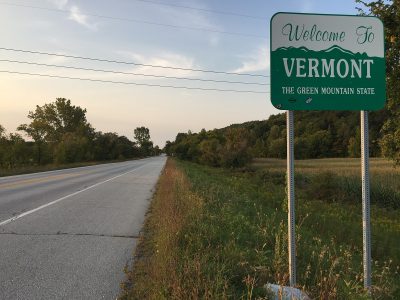People traveling from Vermont to Massachusetts must now quarantine for 14 days. Vermont lost its “lower-risk” designation by the Commonwealth on Saturday, becoming the last continental state to transition to “restricted” status.

Travelers from Hawaii are the only ones remaining who can enter Massachusetts without a mandatory 14-day quarantine or a negative test result within 72 hours before arrival.
Alice Tang, associate professor of Public Health and Community Medicine at Tufts University’s School of Medicine, said the recent rise in COVID-19 cases nationwide prompted Vermont’s removal.
“It doesn’t matter what state [travelers] come from,” Tang said, “because rates are high in every state in the continental U.S.”
Tang said she expected mandatory quarantines, because the United States lacks a comprehensive plan, which makes interstate travel risky.
“Every state is kind of on their own, making their own regulations,” Tang said. “It’s been a little haphazard, what the governors have decided.”
Quarantines may be difficult to enforce, she said, especially because some visitors may stay with family members who may be more lax about restrictions than hotels.
Michael Pieciak, commissioner of the Vermont Department of Financial Regulation, said Vermont’s “lower-risk” status removal comes after a steady rise of COVID-19 cases in the state, stemming mostly from small, informal social gatherings.
“It’s not all that dissimilar from what’s happening across the entire region,” said Pieciak, who has been analyzing COVID-19 for the state since March. “We looked at basically the 14 states, including D.C. and the Northeast, and all of them during the later part of October and November were seeing a spike, a surge in cases, tied back to small social gatherings.”
The resurgence in cases in the Northeast is due to relaxed travel restrictions and the spread of the virus in other regions of the countries, most recently in the Midwest and Great Plains, Pieciak said.
“The fact that our cases are high in the region, even though there are a lot of travel restrictions, we’re still a pretty mobile society,” Pieciak said, “and those cases are going to spread across state borders and across communities relatively easily.”
Pieciak added that Vermont enforced a statewide 14-day quarantine policy on visitors until June, before transitioning to a county-by-county model.
“Those travel policies do help, because they prevent the virus from continuing to spread from community to community,” Pieciak said. “They keep the hotspots where they are, and they allow governments and public health officials to identify them and contain them in a much easier way.”
Paul Abourjaily, associate professor at TUSM, said with the introduction of a COVID-19 vaccine, states should be returning to safe travel status within the year.
“If I go by what Dr. [Anthony] Fauci was talking about this week,” Abourjaily said, “I would say probably by the end of the summer, we should be in a pretty good place.”
With the state’s “lower-risk” status revoked, Abourjaily said Vermont travelers should continue to practice standard health guidelines, such as hand-washing and social distancing.
But he said Vermont’s new status should not be a change for most residents.
“I think we should’ve been careful all along,” Abourjaily said.




























































































































